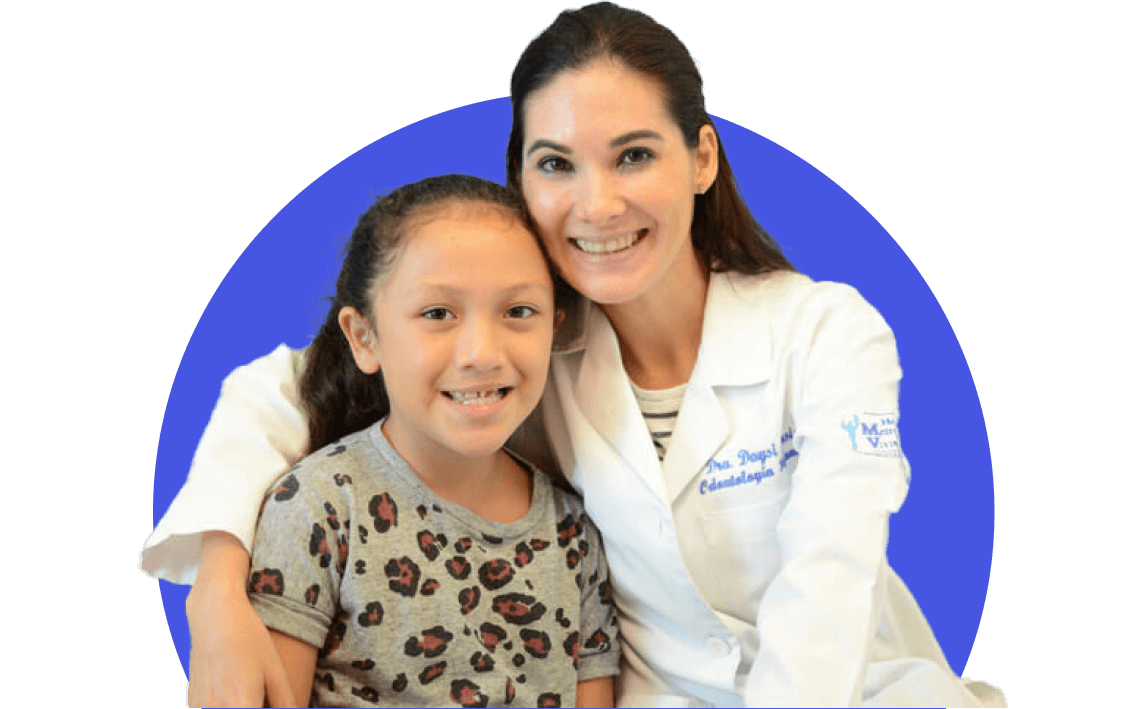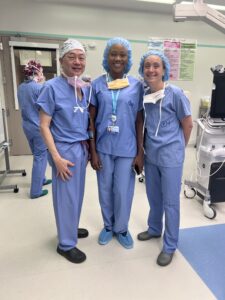 Port Harcourt, Nigeria, June 12, 2024 – “We are not what we know but what we are willing to learn,” said Mary Catherine Bateson. This quote resonates deeply with me as a healthcare provider, constantly striving to offer the best possible care to my patients. This commitment to excellence led me to engage with the Nigerian Association for Cleft Lip and Palate (NACLP), where I first learned about the American Cleft Palate Craniofacial Association (ACPA). The call for applications for the 2024 Visiting Scholar program was an opportunity I could not pass up. I anticipated gaining insights into best practices in cleft care, but the experience surpassed my expectations.
Port Harcourt, Nigeria, June 12, 2024 – “We are not what we know but what we are willing to learn,” said Mary Catherine Bateson. This quote resonates deeply with me as a healthcare provider, constantly striving to offer the best possible care to my patients. This commitment to excellence led me to engage with the Nigerian Association for Cleft Lip and Palate (NACLP), where I first learned about the American Cleft Palate Craniofacial Association (ACPA). The call for applications for the 2024 Visiting Scholar program was an opportunity I could not pass up. I anticipated gaining insights into best practices in cleft care, but the experience surpassed my expectations.
My primary goal was to immerse myself in the daily operations of established Cleft Multidisciplinary Teams (MDTs). The areas of focus were surgical procedures; diagnosis and treatment of velopharyngeal incompetence; observing cleft care providers across different disciplines; and understanding the intricacies of team coordination. This led me to choose the Children’s Hospital of Philadelphia (CHOP) and Monroe Carrell Jr. Children’s Hospital at Vanderbilt in Nashville.
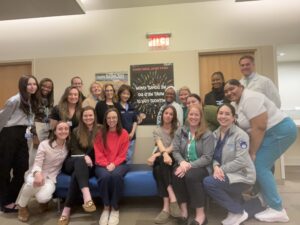 At CHOP, I experienced a phenomenal working environment characterized by:
At CHOP, I experienced a phenomenal working environment characterized by:
- A high volume of patients with complex cleft and craniofacial differences receiving individualized therapy
- Team meetings where specialists shared expert opinions on patient care and discussed strategies to overcome challenges
- A culture of collaboration and dedication to patient-focused care
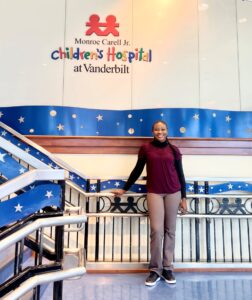 My time at Monroe Carrell Jr. Children’s Hospital Vanderbilt was equally rewarding, with a unique blend of:
My time at Monroe Carrell Jr. Children’s Hospital Vanderbilt was equally rewarding, with a unique blend of:
- Cleft and craniofacial surgeries
- Treatment schedules and protocols tailored to patient needs
- Some patient demographics similar to those at my home institutions, including distant rural dwellers.
Both institutions highlighted the importance of in-depth MDT care and coordination, requiring significant 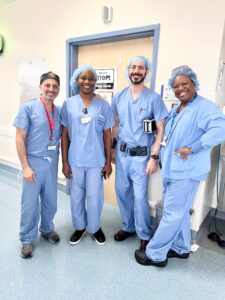 dedication, collaboration, and planning. I was particularly impressed by the high level of parental and caregiver participation in the care process. The clear pathways and schedules for long-term therapy were communicated to families in advance, ensuring their informed involvement. Additionally, their assessments of patient and caregiver opinions about proposed care plans and anticipated challenges were integral to the treatment process.
dedication, collaboration, and planning. I was particularly impressed by the high level of parental and caregiver participation in the care process. The clear pathways and schedules for long-term therapy were communicated to families in advance, ensuring their informed involvement. Additionally, their assessments of patient and caregiver opinions about proposed care plans and anticipated challenges were integral to the treatment process.
The visit sparked my interest in areas previously overlooked in my practice, such as routine hearing tests for all babies born with cleft palate, and comprehensive screening and treatment protocols. It is also birthing structured collaboration between my teams and the teams at the host institutions. Lastly, the experience has raised important research questions about the necessity of certain protocols in my settings.
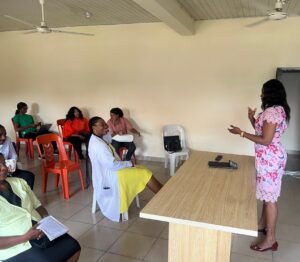 I am deeply grateful to ACPA for this invaluable opportunity and to Smile Train for the sponsorship. This experience has truly empowered me to enhance the quality of care I provide. The knowledge and insights gained will undoubtedly benefit my patients and my professional practice.
I am deeply grateful to ACPA for this invaluable opportunity and to Smile Train for the sponsorship. This experience has truly empowered me to enhance the quality of care I provide. The knowledge and insights gained will undoubtedly benefit my patients and my professional practice.
Dr. Oti Nimi Aria
Plastic Surgeon and Senior Lecturer
Rivers State University Teaching Hospital/ University of Port Harcourt Teaching Hospital,
Port Harcourt,
Rivers State.
Nigeria



